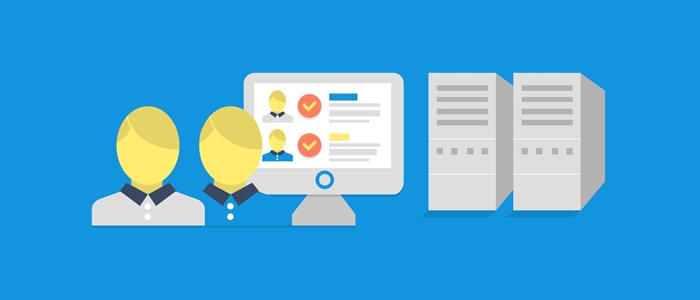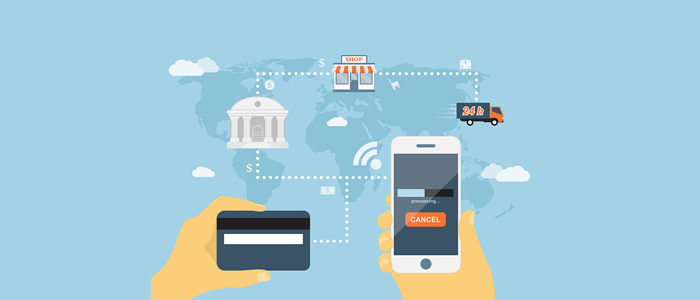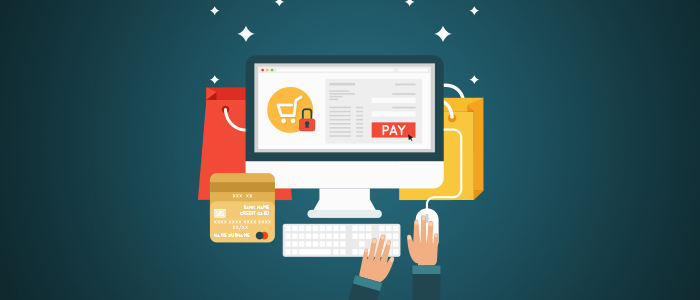Essential Terminologies of E-Commerce
By understanding a few key e-commerce terminologies, you can better comprehend how drop shipping works and learn what you need to do to turn your own drop shipping endeavors into a profitable business.
Without further ado, here are few key e-commerce terminologies you need to know:
Reward Points: A reward points system is a customer loyalty program that most of the e-Commerce websites offer to their customers for keeping them to their store sites and encouraging them to shop more frequently. The reward point system works as a marketing tactic for the e-Commerce business. It focuses to get more sales/orders out of your existing customers, to increase the probability of getting a second order from first time buyers and to bring more value to customers with rewards.
Promo Code: People love good deals, and when you are competing in the online shopping space offering the right coupon code to the right person can help to drive sales and generate a profit. When a store issues promotional codes, they’re providing customers with an incentive to buy, which benefits both the customer and the business. Customers get the products they want for a lower price, and the e-commerce store generates revenue.
Up-Sell: Like any business, you want your customers to spend as much possible. You want them to buy more products and pricier products, along with extra features and add-ons. Through upselling, you can increase your average transaction size, which boosts your customer lifetime value and ultimately makes you more money.
Cross-Sell: Of all the ways to increase the average sale, a cross-sale makes the most sense and is the least pressured because the user actually sees it as something interesting or a cool accessory instead of a sales hassle. The first step to successful cross-selling is identifying complementary products and creating related offers. As with many other aspects in e-Commerce, the timing and positioning of these offers need to be tested for maximum yield.

Email Subscription: Email subscription is an option on a website that allows visitors to receive updates via email by specifying their email address in a subscription form. It is the core part and a starting point of any email marketing strategy
Push Notification: A push notification is the delivery of information to a computing device from an application server where the request for the transaction is initiated by the server rather than by an explicit request from the client. While ‘push notification’ is most often used to refer to notifications on mobile devices, web applications also leverage this technology.
Chargeback: A chargeback – also called a “reversal” – is the return of credit card funds used to make a purchase to the buyer. A chargeback can occur if a consumer disputes a purchase made using their credit card, claiming that it was fraudulent or made without their knowledge or permission. When a buyer disputes a purchase, the credit card company involved reverses the charge, reimbursing the buyer in full and debiting the business’ account. Retailers and other businesses hate chargebacks because they reduce their income and can lead to penalties if too many chargebacks occurs.
Co-branding: Co-branding is any situation where two or more brands share space on a product, advertisement, or any other promotional or business offerings. Co-branding creates marketing synergy by forming a larger overall customer base which combines the brands’ existing customers, highlighting the best aspects of each brand. Online businesses engaging in co-branding have the added visibility of their website and other online properties to further promote a campaign
Cookies: Cookies are messages that web servers pass to your web browser when you visit Internet sites. Cookies are most commonly used to track website activity. When you visit some sites, the server gives you a cookie that acts as your identification card. Upon each return visit to that site, your browser passes that cookie back to the server. In this way, a web server can gather information about which web pages are used the most, and which pages are gathering the most repeat hits.

CRM: The entire process of a pre-sales, sales and service relationship with a customer. Many software applications are now available that permit you to record this relationship from the time the clients asks their first question. Good CRM software is much more efficient than fragmented records as it can save time in tracking communications and transactions with a particular person.
EDI (Electronic Data Interchange): This is the business to business (b2b) flow of information between companies or within a company itself. The 90’s saw the concept of information equaling power. Whatever creates power also generates money and therefore creates new enterprises to supply this information.
E-tailing: These are mainly “virtual” storefronts which act as a catalogue of products of merchants and usually include a “shopping cart” system to enable consumers to purchase online with the use of credit cards.
Firewall: A firewall is a system designed to prevent unauthorized access to or from a private network. You can implement a firewall in either hardware or software form, or a combination of both. Firewalls prevent unauthorized internet users from accessing private networks connected to the internet, especially intranets

Gateway: Computer that allows communications between networks one network with another. Used in e-commerce to act as an interface between a merchant and a bank; i.e, a Payment Gateway. Payment gateway has a major role in e-Commerce development service. It’s basically a channel between an e-Commerce website and the bank that approves (or declines) a customer’s credit card payment through a payment gateway providers.
Infomediary: An infomediary is an online resources that collates data from a variety of sources and acts as a middleman between those distributing the information and people who want the information.
e-Check: An E-Check is a form of payment that deducts funds directly from your own standard checking account. e-Check services are usually managed by third party companies that interface with a number of different banks. An e-check provides a more fraud resistant option in terms of e-commerce transactions.
Merchant Account: A special account where money from credit card sales is first routed to and held before transfer to your own business account. This process is usually fully automated in e-commerce transactions. Money may be transferred into your standard business account in real-time or during various points in a 24 hour period. A merchant account is a crucial part of e-commerce

